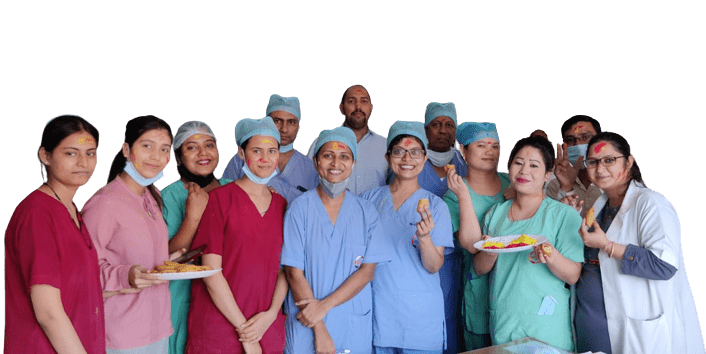Need Help?
We are here to help.
We care for each one who come to us with hope in their hearts.

Assisted Reproductive Technology (ART) has made groundbreaking advancements in the past decade, especially in India. It has made it possible for couples to bear children and complete their family despite unfortunate health ailments and other reasons such as delayed marriages through several techniques, which were unthinkable in the past. One such technology, which is fast gaining acceptance and momentum with urban Indian women, is oocyte cryopreservation, more commonly known as egg freezing.
Women in today’s day and age no longer wish to be married and have children by the age of 30. They are much more independent, career oriented and ready to experiment before they take on the challenges of marriage and motherhood. However, the biological make of a woman only allows her to produce the highest quality eggs before the age of 30 and it continues to deteriorate especially after the age of 35. In such cases, oocyte (egg) cryopreservation, which involves egg extraction, freezing, and storage; allows women to secure future childbirth without compromising on their freedom and wishes.
In addition to this, egg freezing is also used to secure motherhood for women suffering from diseases such as cancer. The reason for this is that treatments like chemotherapy, surgery or radiation often destroy the eggs and lead to infertility. Depending on the risk, age of the woman, type of cancer, and cancer-treatment plan, doctors recommend egg freezing as an option for women suffering from the disease.
Another medical indication for egg freezing is when the male partner of the couple undergoing IVF is unable to collect a semen sample for oocyte insemination on the day of the oocyte retrieval. In addition to this males with severe infertility may have insufficient sperm for fertilization of revived oocytes. In such cases oocytes may be cryo-preserved for insemination and embryo transfer at a later date.
The procedure is a simple one. The ovaries of the woman opting for oocyte cryopreservation are stimulated using fertility medications. Multiple eggs, as a result, reach maturation during a single treatment cycle. Follicle-stimulating hormone is self-administered in the form of a daily injection for about a week. The ovarian response is monitored over a period of about two weeks. Once the eggs are deemed ready, oocyte harvest or egg retrieval is carried out under mild sedation that takes about 10 to 15 minutes. The retrieved eggs are then frozen using either a slow-freeze method or a flash-freezing process known as vitrification. Of note, the egg is dehydrated and the water is replaced with an anti-freeze so as to prevent ice crystal formation and damage to the cell. These eggs can be stored for as long as 10 years, however research data only proves effectiveness for up to 2 years.
The success rates of this process are about 40% – 50%. The success however depends on the quality of the eggs. Generally, younger women have higher quality eggs than women who are older, and the egg quality declines as a woman ages. For this reason, egg freezing tends to be more successful in women who have their eggs frozen at a younger age. The best outcomes for egg freezing tends to be for women who freeze their eggs when they are younger than 35.
The limited research available given that it is a relatively newer technique indicates the process to be safe with respect to the health of the babies born from frozen eggs, with no increased rate of birth defects/chromosomal defects reported when compared to the general population/embryos derived from fresh eggs, respectively. However one must keep in mind that the usual risks of using fertility drugs apply to the fertility treatment involved. In addition to that there exists less evidence to prove how many eggs will survive the freezing and thawing process or become fertilized. In such cases it may give women a false hope of future pregnancy, which may or may not happen leading to emotional turmoil and complications. Thus, it is important that you take into consideration several factors such as the risks of this procedure and the likelihood of your eggs surviving the process when deciding whether to store your eggs for future use.
A 32 year old unmarried lady with Breast Cancer. Before undergoing chemotherapy we froze 18 eggs. She came back 3 years later, this time married. We prepared her uterus, defroze the eggs, fertilized them using her husband’s sperm, by a process called intracytoplasmic sperm injection (ICSI). We could manage to get 8 embryos. We transferred 3 into her uterus and froze the other embryos. She got pregnant in that treatment cycle and now has a one year old boy. If she wishes to come back for a second child we could use the other embryos. This is nothing less than a scientific morale which was not possible even 5 years ago in our country!
We care for each one who come to us with hope in their hearts.

Disclaimer – Dr Kaberi is not associated with any Hosptial/Clinic other than “Advanced Fertility and Gyne Center (AFGC)”. AFGC has only four centers at present 1. “Lajpat Nagar” 2. “CR Park Delhi” 3. “Noida” 4. “Gurgaon“.